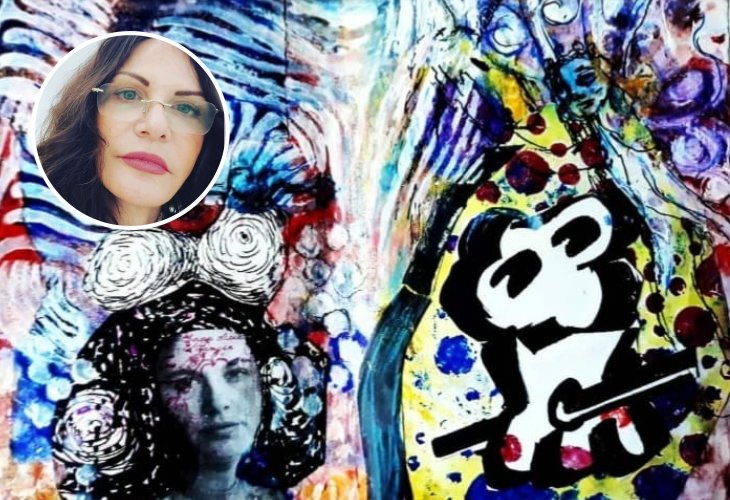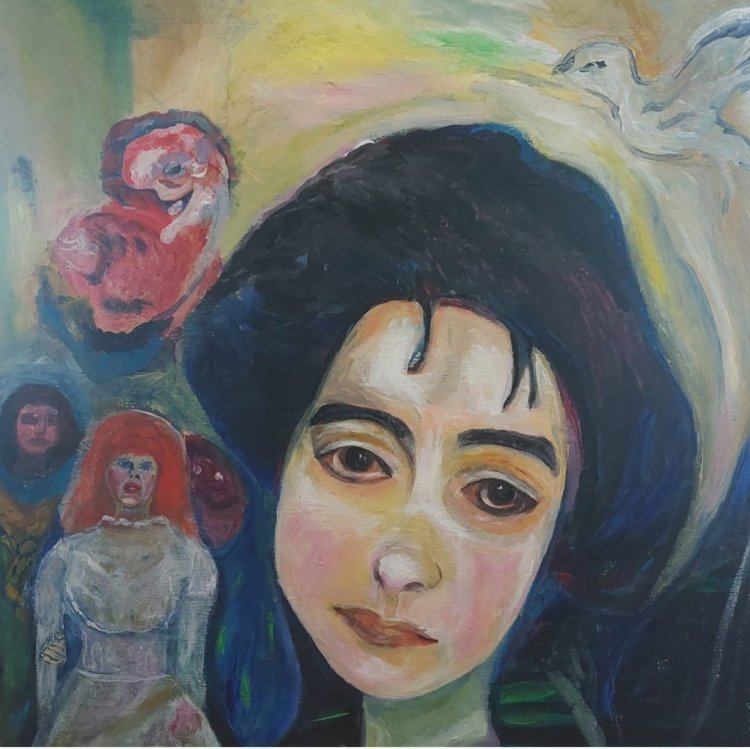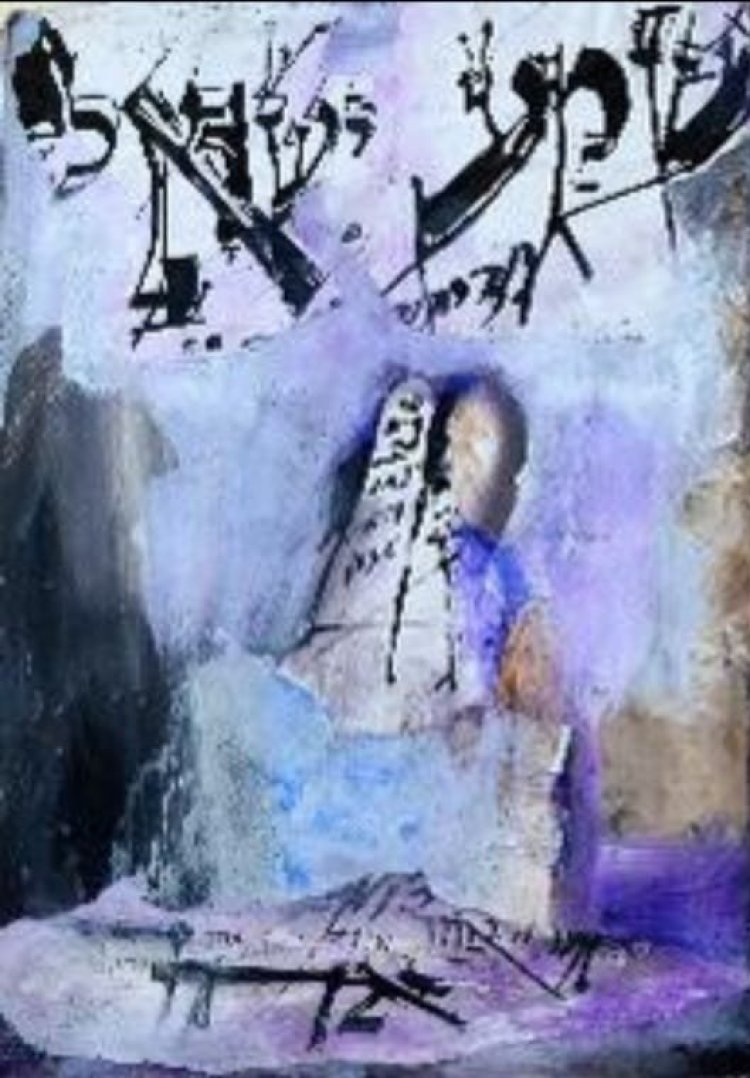A Journey Through Art and Faith: Surviving Mental Illness in the Family
Irit Halevi Bar-Noy grew up with a mother suffering from schizophrenia and a father who was a Holocaust survivor and war-traumatized. She built her own family, only to face her son's mental illness at age 18. In a heartfelt conversation, she shares how art heals her and the enduring faith that sustains her.

"I couldn't believe this was happening to me," says Irit Halevi Bar-Noy, reflecting on events from about 19 years ago. "My son, only 18 and a half years old, was diagnosed with a mental illness, and suddenly I found myself navigating the same hospital corridors where I once accompanied my mother. This time, instead of supporting her, I was there for my son."
If this sounds like the beginning of a tragic story, you're mistaken. Irit, despite growing up with a mentally ill mother and facing numerous life challenges, exudes joy and gratitude today. "I thank Hashem every day for the good He provides, as Hashem is all good and continually blesses us," she expresses early in our conversation.
Forgiving My Mother
Irit was born about 62 years ago in Tel Aviv, growing up primarily in Bat Yam. "On the outside, no one could tell what I was experiencing," she recalls. "I was a creative, friendly, and successful child, with many friends and passions, especially for art. I always appeared cheerful, but behind closed doors, everything was different."
Irit's voice softens as she describes her home life: "It was challenging. My mother had schizophrenia, though back then, it wasn't diagnosed, and they assumed she had postpartum depression. No one discussed it with us, nor was she treated. It was a different era with little awareness, and sadly, my mother paid the price."
What did that mean for you?
"Although my mom worked as a teacher, she couldn't manage at home, often retreating into herself. Growing up with a mother unavailable emotionally was difficult, especially since, as the eldest, I bore the brunt of her harsh verbal criticism. Our relationship was complex and full of critique."
And your father?
"My father was a Holocaust survivor and also deeply affected by the Six-Day War. Twice a year, on Holocaust Remembrance Day and Memorial Day for Israeli Fallen Soldiers, he would lock himself in his study with a memorial candle from school. Although we had a strong bond because he was an artist at heart, like me, it was difficult when he disappeared into his grief during those times."

The Gift of Faith
Irit is a talented artist, and her work is rich in imagery, narrative, and depth. "They are vibrant yet also convey pain," Irit explains. "This duality reflects something deep within me since childhood. I've tried to maintain joy and not let life’s pain take over, even though it’s often present."
As she grew, Irit's desire to pursue art professionally led her to study in various prestigious courses. "My father was immensely proud and supported me," she smiles. "It was hard to get praise from my mom, but I don't hold it against her. She was genuinely a good person, just terribly ill. She may not have been functional, but she loved us deeply in her heart. At 40, I decided to forgive her wholeheartedly, and that was not easy."
However, after marrying and having children, Irit faced a new challenge at home. "When my son was 18 and a half, he developed a mental illness," she shares with pain. "It felt like déjà vu, like returning to my childhood days accompanying my mom to hospitals. It shattered me—for me, it was too much. How could this happen? He’s not just my son but my closest friend. When he was hospitalized on Shabbat, I felt so distant from religion that I drove there. I looked at myself and wondered if I was truly cutting ties with Hashem. Afterward, I reflected and realized that despite the crisis in faith, there were numerous good things to acknowledge. Since then, my faith only strengthens, and nothing can separate me from Hashem."
Irit wishes to convey a significant message: "We all face life's challenges, and the closer we draw to Hashem, the easier they become. I've always been a believer, and studying Hasidism intensely in recent years has significantly impacted me. My faith is the bridge to Hashem, guiding me safely, even if the path isn't clear."

Choosing Positivity
Nineteen years have passed since her son’s diagnosis, and she describes him today as balanced and doing well. "By Hashem's grace, he appears entirely normal, living independently, and functioning well. Beyond that, he is intelligent, talented, and deeply connected to his faith," Irit proudly shares.
Personally, Irit confides, "This is the first time I'm sharing my son's story. Prior to our interview, I sought his approval. He simply replied, 'I haven't done anything wrong by having a mental illness; it's a trial Hashem has given me.' His candid approach provided me strength, revealing their perseverance and willingness to strive for success. I believe he has a bright future, and our true celebrations will come when he finds someone and builds his own home. Whoever is fortunate to meet him will truly have a gem."
How do you find the strength to endure such trials without breaking down?
"It's a process, not an overnight matter. It took time to mentally process it all," Irit explains. "Having the experience with my mother, it was hard to face a similar challenge with my child. But over time, I understood life is filled with trials and joys, and we choose our perspective. I always tell my son: 'Let’s appreciate every little thing.'
"Since choosing positivity, I've discovered precious moments with my son. We meet weekly, dine out at a good restaurant every new month, and visit family often. Yes, there are difficult times, but his faith and connection to Hashem help him immensely. During episodes, he practices hitbodedut (solitary prayer), which is remarkably healing."
Art as Emotional Rescue
Her son's experience rekindled Irit's passion for art, leading to her full return to it after years in optical retail. "My son heard about an artist in the north and urged me to connect with her, feeling it would benefit me," she says. "Art, for me, is not only satisfying but healing."
Irit’s artistic work is visible in vibrant paintings, mixed media, and visual journals that accompany various life phases. "When my father passed, it was documented in an art journal, as was my mother's passing and the onset of the conflict. These acts organize my thoughts and creations."
What can visitors expect from your upcoming exhibition?
"Titled 'Living on a Cloud,' the exhibition will be at Chana Winkel Gallery in Jaffa Port all next month. It features narratives with symbols and motifs infused with bold colors and powerful lines."
"I chose to present it during wartime," Irit notes, "to offer an escape into art and culture and deliver its important, uplifting message. My work, filled with emotional turbulence, is apt for challenging times."

